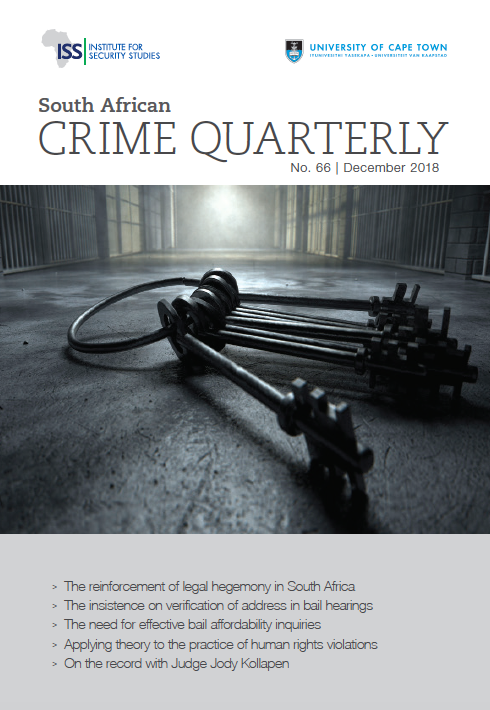The Lindela Repatriation Centre, 1996–2014: Applying theory to the practice of human rights violations
DOI:
https://doi.org/10.17159/2413-3108/2018/i66a5623Abstract
This article is based on media content analysis of more than 230 newspaper articles written on the Lindela Repatriation Centre from its establishment in 1996 to 2014. This centre is South Africa’s only holding facility for undocumented migrants1 awaiting repatriation, and the data revealed that it is a hub of human rights violations. The article juxtaposes the South African Bill of Rights, which supposedly underpinned the establishment of the centre, with the grotesque human rights violations that have occurred there since its inception. In light of this, the article draws on the theorising of Giorgio Agamben (1998), and particularly his theoretical contribution of the ‘homo sacer’ as one who has been left behind or excluded from the territorial boundaries that confer the rights of citizenship. I found that the detainees at the centre are largely living in what Agamben describes as a ‘state of exception’ and that undocumented migrants are often treated as ‘bare life’, as individuals who are subject to the suspension of the law within the context of the centre. Since they are non-citizens of the recipient state, these actions amount to xenophobia, which manifests in a gross violation of human rights.
Downloads
Downloads
Published
Issue
Section
License
Copyright (c) 2018 Author and Institute for Security Studies

This work is licensed under a Creative Commons Attribution 4.0 International License.
SACQ is licenced under a creative commons licence (CC BY) that allows others to distribute, remix, tweak, and build upon your work, even commercially, as long a they give appropriate credit, provide a link to the license, and indicate if changes were made. They may do so in any reasonable manner, but not in any way that suggests the licensor endorses you or your use.
Copyright for articles published is vested equally between the author/s, the Institute for Security Studies and the Centre of Criminology (UCT).




.png)